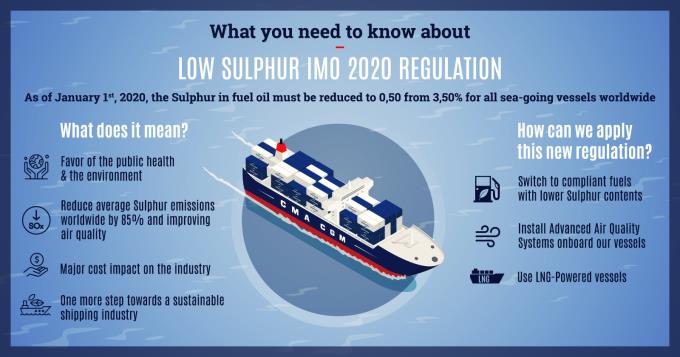IMO 2020 is coming – we’re prepared – are you ?
May 24, 2020 0CourierOcean Cargo
IMO 2020
On 1 January, 2020 new rules come into play globally which aim to reduce sulphur oxide emissions from ships. From that date, all merchant vessels must use marine fuels with a maximum sulphur content of 0.5% compared with the current 3.5%.
The new regulations are being introduced by the IMO (the International Maritime Organization) and are referred to as IMO 2020. The aim of this emissions cut is to significantly reduce the shipping industry’s impact on the general public and the environment.
All ship operators need to comply with these new regulations whether by upgrading vessels or fuel – these new regulations mean increase costs across the board which will be passed on to you the shipper. This is a compulsory change in the rules from 1 January, 2020 and applies to all companies involved in ocean freight forwarding.
At TRANSATLANTIC GLOBAL LOGISTICS INC Logistics’ our ocean freight specialists around the world are fully versed in what these changes will mean for you.
As a responsible multi-modal operator TRANSATLANTIC GLOBAL LOGISTICS INC thoroughly endorses the initiative and will support you in understanding the new rules and what their impact will be on you.
The first changes in respect of IMO 2020 will start to be implemented during the month of October 2019 with the whole programme coming into full effect on 1 January, 2020.
Between now and then we expect you will have many questions and in order to provide an easy reference point for you, we have set up a link to our website featuring key questions and their answers. Please click here to view the responses from our experts.
The details about how the new IMO 2020 charges will impact your business will be communicated by your local TRANSATLANTIC GLOBAL LOGISTICS INC Logistics representative as appropriate. But in the meantime, if you have any questions you would like us to answer directly, please email;
We look forward to assisting you through the transition process now and on into 2020 to ensure a successful introduction of the new rules.


